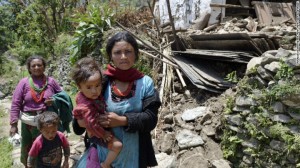East African Community (EAC)’s citizens encountering violent crimes in foreign countries will get support from their country embassies, thanks to EAC Anti-Trafficking in Persons Bill, 2016.

Before the East African Legislative Assembly (EALA) passed the Bill here yesterday, several members debated it extensively, with Ms Susani Nakawuki asking embassies abroad to increase efforts in helping the EAC citizens in difficulties.
“The primary concern of the Embassy or Consulate should be the safety of citizens, arranging for medical assistance, providing guidance on regulations and contacting next of kin in the event of violent attack, accident or death,” she said.
Ms Nakawuki accused many EAC member embassies abroad of not offering enough support to the victims, arguing that it’s high time changes were made amid this era of escalating human trafficking in the pretext of searching jobs. She said most of the victims were women as another legislator, Adam Kimbisa drummed up for increased control of the permissions to leave the country.
“Details of where our citizens are going (abroad) should be made available before the leaving approval.” Ms Dora Byamukama, who moved the Bill, Mr Martin Ngoga and Ms Maryam Ussi who presented the Committee on Legal Rules and Privileges report on behalf of the substantive Chairperson, Mr Peter Mathuki, asked all members to endorse the proposed legislation.
The Bill now awaits the assent of the EAC Heads of State in line with Article 63 of the Treaty of the Establishment of the EAC. Should the Heads of State assent the Bill, it will become an Act of the Community, taking precedence over the laws of the partner states on the matter.
The Bill seeks to provide a legal framework for the prevention of trafficking in persons, prosecution of perpetrators of crime, provision of protection mechanisms and services for the victims of trafficking and strengthen partnerships against trafficking in persons in regional bloc.

